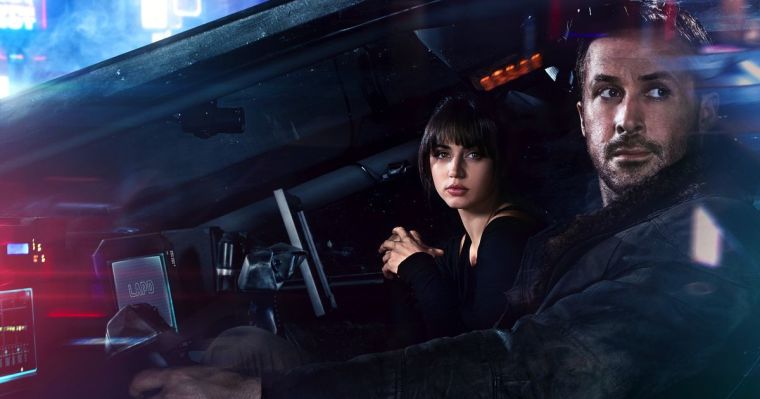3 min to read
Bladerunner: 2049
Breathtakingly beautiful to look at, sensative, and more focussed than the original - Bladerunner 2049 is my favorite movie of 2017.
by Zach Saul

Bladerunner: 2049 is not an action movie. It’s a slow meditative sci-fi mystery that rich with subtleties, nuance and symbolism. Bladerunner: 2049 is one of the most magnificent visual achievements of the past 5 years. The vivid colors, dystopian landscapes, and obnoxious product placement paint an engrossing picture of a post-apocalyptic world. The bleakness, and in many cases relentlessness of commercialism in the movie makes it easy to loose yourself in the moodiness, and meditate alongside Joe. Denis Villenueve seems to grasp how big the ideas are in Bladeruner, and to his credit moves slowly enough to let you meditate on them, choosing substance over cheap thrills when conflict arises.
Of particular interest to me was the way Villenueve and Ryan Gosling (Joe, the lead) deal with emotion. “Replicants” were designed by the Tyrell corp and adapted by the Wallace Corporation to make ideal “slaves” without human emotional responses. Yet the movie floats the idea that implanting and accruing memories allows Replicants to develop responses - albeit muted ones. And despite their limited emotional capacities is becomes very clear it’s the Replicants who have the more nuanced and sophisticated emotional capacity. Rick Deckard (Harrison Ford), is the most significant human character, and doesn’t get introduced until the final third of this movie - and even he has muted and subdued emotional reactions. There’s an interesting paradox hidden inside artificial intelligence that Balderunner tries to point out: If we create a machine capable of thinking dynamically on it’s own - how can we expect it to ‘obey’ without questioning our commands?
The Bleakness of the Bladerunner: 2049 can be challenging at times but makes the moments of nostalgia and emotional catharsis more rewarding as they unfold. A nostalgia for pre-apocalyptic world, and non-mechanical things fuel Joe/Agent K’s (Ryan Gosling’s) curiosity as he discovers a mysterious “child” and investigates it’s origin. It’s exciting to watch a character search answers to existential questions like “what does it mean to be born?” “what is it like to have a soul?”, especially when we know he’s ill-equipped to do so. Each of the Replicant characters has chosen something unique to cling to as a token of hope - be it a holographic wife, a wooden horse, a memory of a birthday party, or an old matchbox - and it’s interesting to consider the symbolic meaning behind each.
The cinematographer does an excellent job of focusing on the beauty man made structures create while at the same time underscoring the hollowness they force upon people living in them. In a way the challenge the viewer faces in determining which responses are human in the Replicants mirrors their relationship with the landscapes - as at different points we feel the most mechanical and man-made structures are the most “real”, and “human”.
The Good: The intricacies in this movie are really impressive, and merit many viewings. the masterful cinematography, and the way the narrative explores memories relationship to emotion is endlessly thought provoking. There’s enough substance in this movie to occupy a philosophy class or film seminar for an entire semester.
The Bad: It’s difficult to follow, and very dense. A casual film goer or action movie buff will probably be disappointed by this movie. The pacing is slow and meditative, and for those not acustomed to plot points being left intentionally vague Bladerunner: 2049 could be a frustrating 3 hours.
| Movie Details | |||||
|---|---|---|---|---|---|
| Studio: | |||||
| Director: | Denis Villeneuve | ||||
| Written By: | |||||
| Staring: | Ryan Gosling | Ana de Armas | Harrison Ford | ||

Comments